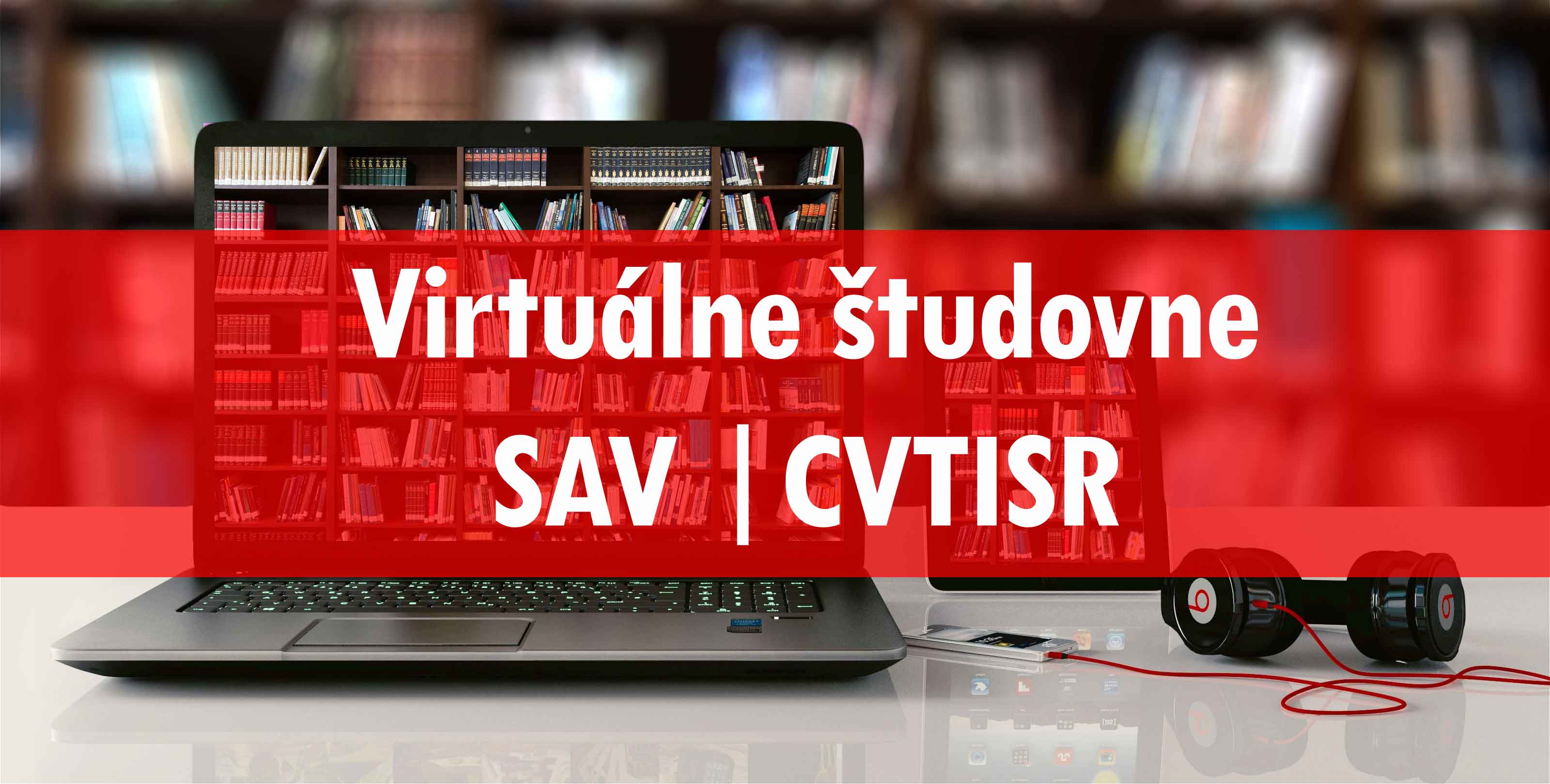| VEDECKÝ ČASOPIS O DEJINÁCH SLOVENSKA A
STREDNEJ EURÓPY
VYDÁVA HISTORICKÝ ÚSTAV SLOVENSKEJ AKADÉMIE VIED, V. V. I. ISSN 0018-2575 (print) ISSN 2585-9099 (online) EV 3084/09 Všetky obsahy sú čitateľom voľne dostupné podľa licencie Creative Commons CC BY 4.0. Indexovanie a abstraktovanie: Web of Science Core Collection: Arts & Humanities Citation Index Additional Web of Science Indexes: Current Contents Arts & Humanities Scopus CEEOL CEJSH EBSCO Historical Abstracts ESF (HUM) |
AKTUÁLNE ČÍSLO | REDAKCIA | POKYNY PRE AUTOROV | ARCHÍV | PREDPLATNÉ | O ČASOPISE | PUBLIKAČNÁ ETIKA | VÝZVY
Historical Journal Volume 58, 2010, Supplement C O N T E N T S A r t i c l e s Dvořáková, Daniela: The Chronicle of Ulrich
Richental as an Exceptional Source for the History of Slovakia ... 3 R e v i e w s Dangl, Vojtech: Under the Banner of Emperor and
King (Milan Podrimavský) ... 139 DVOŘÁKOVÁ, Daniela. The Chronicle of Ulrich Richental as an Exceptional Source for the History of Slovakia. Historický časopis, 2010, 58, Supplement, pp. 3-21, Bratislava. The study is devoted to the Chronicle of the Council of Konstanz by Ulrich Richental, in which he described the events of the Church council of 1414 – 1418. The chronicle is also known from the point of view of Slovak history in relation to its mentions of the territory of Slovakia, which prove that in the 15th century, the territory of Slovakia was perceived as special and ethnically different in the framework of the Kingdom of Hungary. In several places, Richental mentions noblemen, whose property was located in the territory of present-day Slovakia as lords “in Windischen länden”. A closer geographical location, such as on the river Váh, is sometimes given. In Richental’s Chronicle, apart from the name “Hungary”, also called in one place “Ungerland”, we also find Slovakia designated as “Windenland”. Richental’s mentions of Slovakia are very valuable, but so far more or less unknown in expert literature Council of Konstanz. Sigismund of Luxembourg. Ulrich Richental. Slovakia. Slovaks. Nobility in the Kingdom of Hungary. HOLLÝ, Karol. The negation of event history and historical optimism: the historical ideology of Svetozár Hurban Vajanský (1881 – 1897). Historický časopis, 2010, 58, Supplement, pp. 23-52, Bratislava. By analysing selected texts by S.H. Vajanský from the period 1881 – 1897, the author points to his conception of history, in the context of his national ideology and conception of the policy of the Slovak National Party (Slovenská národná strana) at the end of the 19th century. Vajanský’s historical argumentation rests on two different but inter-connected interpretations of national history. The first starts from the concept of the Slovak nobility as an elite group in the society of the Kingdom of Hungary, the only group able to represent the mass of the nation. However, instead of this, it voluntarily “broke its connection with its people”, which is the cause of national poverty. Vajanský, however, did not find any cause for pessimism, but for optimism, thanks to the fact that the role of representing the mass of the nation had been taken up by the national intelligentsia. On this basis, he constructed a second interpretation of national history based on their negation. According to him, the Slovak people remembered “prehistoric times”, but remained untouched by “historic times”, which, in the interpretation of the author, meant event or political history. The negation of event history led to historical optimism – the Slovak nation still had its history in front of it. History of national ideology. Ideology of the Slovak National party 1881 – 1897.Svetozár Hurban Vajanský. History as ideological argument (historical ideology). MICHELA, Miroslav. Plans for Slovak autonomy in Hungarian politics 1918 – 1920. Historický časopis, 2010, 58, Supplement, pp. 53-82, Bratislava. The study is devoted to the plans of the former Hungarian political elite for the inclusion of “new born” Slovakia in Hungary. Several such plans arose immediately in the period 1918 – 1920, when the “Slovak question” was regarded primarily as a solvable task on the way to renewal of the integrity of the historic Hungarian state. This fact was also reflected in the activities of the Budapest government circles, which established their own irredentist organizations and supported movements, which tried to undermine the idea of Czecho-Slovak statehood. Especially the groups of emigrants, who had voluntarily or involuntarily left the territory of the emerging Czechoslovak Republic, became substantially engaged in this direction. History of Slovakia 1918 – 1920. Autonomy. Trianon. Hungarian foreign policy. Irredentism. Revisionism. František Jehlička. Andrej Hlinka. Viktor Dvortsák. Slovak – Hungarian relations. KLAMKOVÁ, Hana. The Universality of Anti-Semitism and the Uniqueness of the Holocaust: Slovakia as a Case Study. Historický časopis, 2010, 58, Supplement, pp. 83-107, Bratislava. While anti-Semitism is usually perceived as a universal phenomena, the Holocaust is often viewed as a unique and unprecedented event. However, when it comes to explaining the Holocaust, reference to anti-Semitism seems to be the only answer, the sole factor that led to the tragedy. But if – in one or another form – anti-Semitism is a constant feature, what makes the Holocaust an unparalleled experience? The aim of this study is not to investigate the uniqueness or “historicization” of the Holocaust, but rather to analyse the relation between anti-Semitism as a phenomena and the Holocaust as an event. The concerned relation is studied on the example of Slovakia, in the period between the formation of Slovak national consciousness and the end of the Second World War. Anti-Semitism. Holocaust. Slovakia. KOVÁČ, Dušan. The Transformation of the Slovak Academy of Sciences in the period 1989 – 1993. Historický časopis, 2010, 58, Supplement, pp. 109-137, Bratislava. The study is devoted to the transformation of the Slovak Academy of Sciences as a result of the social changes after November 1989. The transformation is traced in three stages. The first stage, which lasted from November 1989 to the election of a new Presidium of the Academy in January 1990, was very dynamic. Strike committees were formed and there were changes in the leadership of the Academy and its institutes. The changes culminated in the election of a new democratically elected body: the Council of Scientists of the Slovak Academy of Sciences. The second stage occurred during the term of office of the new democratically elected Presidium of the Slovak Academy of Sciences (Predsedníctvo SAV) (1990 – May 1992). The coarsest deformations and injustices caused by the totalitarian regime were corrected, and the Academy developed a new character as a non-university academic institution. During the second Presidium of the Academy (May 1992 – 1993), the transformation continued especially in the field of making scientific research more effective. The number of employees of the Academy was reduced by almost half, while scientific research was maintained on a good level. Apart from structural changes, the introduction of a grant system contributed to this. The transformation was largely completed in the period 1989 – 1993, and the Slovak Academy of Sciences was transformed into a democratically run, effective scientific institution, which carried out basic research and in some areas also targeted applied research. History. Slovak Academy of Sciences. Transformation 1989 – 1993.
Do Vašej pozornosti ďalej
odporúčame: |



